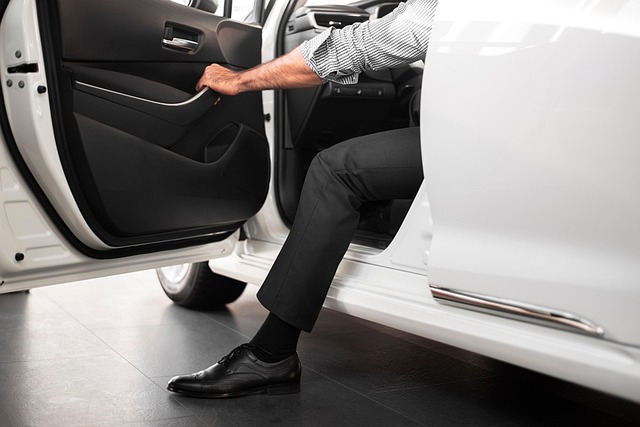Understanding Police Impound Cars for Sale: Auctions, Process, and Benefits
When vehicles are seized by law enforcement agencies due to illegal activities, unpaid tickets, or abandonment, they often end up in police impound lots. After a specified holding period, these unclaimed vehicles may be sold to the public through auctions. Police impound car auctions represent an opportunity for buyers to potentially purchase vehicles at below-market prices, though the process involves certain risks and considerations that potential buyers should understand before participating.

What Are Police Impound Cars for Sale?
Police impound cars are vehicles that have been seized by law enforcement agencies for various reasons. These may include vehicles used in criminal activities, abandoned vehicles, cars with excessive parking violations, or vehicles seized during arrests. After a legally mandated holding period during which owners can reclaim their property (typically 30-90 days, depending on local regulations), unclaimed vehicles become eligible for public sale. These vehicles are then typically sold through government auctions, online platforms, or third-party auction houses contracted by the government agencies.
How Police Impound Auctions Work
The process of buying police impound vehicles follows a specific structure designed to maintain transparency and maximize returns for the government agencies involved. Most police impound auctions begin with a preview period where potential buyers can inspect available vehicles. This inspection is crucial as most impound cars are sold “as-is” without warranties or guarantees regarding their condition. During the auction itself, vehicles are presented one by one, with bidders competing to offer the highest price. Successful bidders must typically pay in full on the auction day using approved payment methods such as cash, certified checks, or credit cards, depending on the auction house policies.
Registration requirements vary by location but generally include providing government-issued identification and, in some cases, paying a refundable deposit to obtain a bidder number. Some jurisdictions require bidders to be at least 18 years old and have a valid driver’s license.
Where to Find Auction Cars for Sale
Several channels exist for accessing police impound auctions. Government websites often post announcements about upcoming auctions, including dates, locations, and available inventory. Local newspapers typically carry public notices about these events in their classified or public announcement sections. Specialized auction websites like GovDeals, PublicSurplus, or PropertyRoom.com serve as platforms for online police auctions, allowing participants to bid remotely on impounded vehicles.
Additionally, third-party auction houses contracted by government agencies may handle the sale of impounded vehicles. These professional auctioneers advertise upcoming events on their websites and through various marketing channels. For those interested in regular participation, auction notification services can provide alerts about upcoming sales in specific areas.
Benefits of Purchasing Police Impound Vehicles
The primary advantage of buying police impound cars is the potential for significant cost savings. These vehicles are often sold at prices below retail market value, sometimes at 30-70% less than dealership prices for comparable models. This creates opportunities for budget-conscious buyers or those looking to resell vehicles for profit.
Another benefit is the diverse selection of vehicles available at these auctions. From economy cars to luxury vehicles, and from recent models to vintage automobiles, police impound auctions offer variety that might not be found at traditional dealerships. Some impounded vehicles may have low mileage or be in good condition, providing exceptional value for informed buyers.
For buyers with mechanical skills, these auctions present opportunities to purchase vehicles that may require minor repairs at deeply discounted prices. After investing in necessary maintenance, these vehicles can provide reliable transportation at a fraction of retail costs.
Risks and Considerations When Buying Impound Cars
While the benefits can be substantial, potential buyers should be aware of several risks associated with impound car purchases. Most significantly, these vehicles are sold “as-is” without warranties, meaning buyers assume all responsibility for mechanical issues discovered after purchase. Limited inspection opportunities before bidding can make it difficult to fully assess a vehicle’s condition, potentially leading to unexpected repair costs.
Some impounded vehicles may have complex title histories, including liens, outstanding loans, or other legal complications. Buyers should conduct thorough title checks before bidding to avoid potential legal issues after purchase. Additionally, vehicles may have been impounded due to involvement in criminal activities, which could lead to unforeseen complications.
Pricing and Value of Police Impound Vehicles
The pricing of police impound vehicles varies widely based on factors including the vehicle’s make, model, year, condition, and the number of bidders present at the auction.
| Vehicle Category | Typical Auction Starting Price | Average Sale Price | Potential Savings vs. Retail |
|---|---|---|---|
| Economy Cars | $300-$1,000 | $1,500-$4,000 | 40-60% |
| Mid-Range Sedans | $500-$2,000 | $2,500-$7,000 | 30-50% |
| Luxury Vehicles | $1,000-$5,000 | $5,000-$20,000 | 50-70% |
| SUVs & Trucks | $800-$3,000 | $3,000-$12,000 | 30-55% |
Prices, rates, or cost estimates mentioned in this article are based on the latest available information but may change over time. Independent research is advised before making financial decisions.
Tips for Success at Police Impound Auctions
Successful bidding at police impound auctions requires preparation and strategy. Research is essential—buyers should determine the market value of vehicles they’re interested in before attending the auction to avoid overbidding. Bringing a mechanic or someone with automotive knowledge to inspect vehicles during preview periods can help identify potential issues that might not be immediately apparent.
Setting a firm budget and maximum bid amount for each vehicle prevents emotional bidding that may lead to paying more than a vehicle is worth. Experienced auction participants recommend arriving early to thoroughly inspect vehicles of interest and observing the bidding atmosphere before participating. For first-time buyers, attending an auction as an observer before actually bidding provides valuable insights into the process without financial risk.
When properly approached, police impound car auctions can offer excellent value for informed buyers who understand both the opportunities and risks involved in these transactions.




